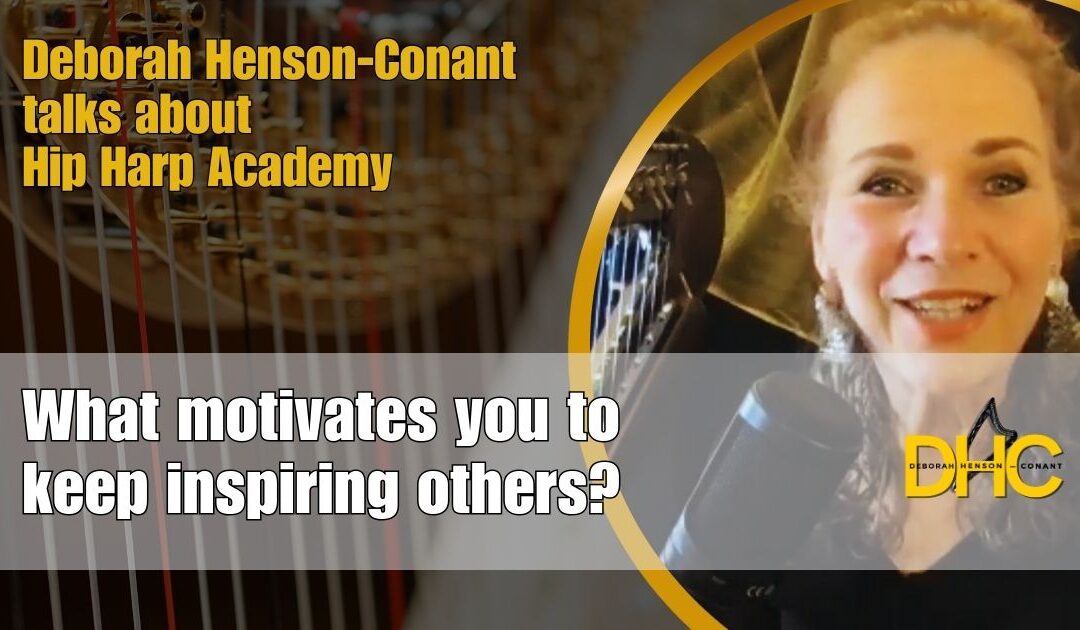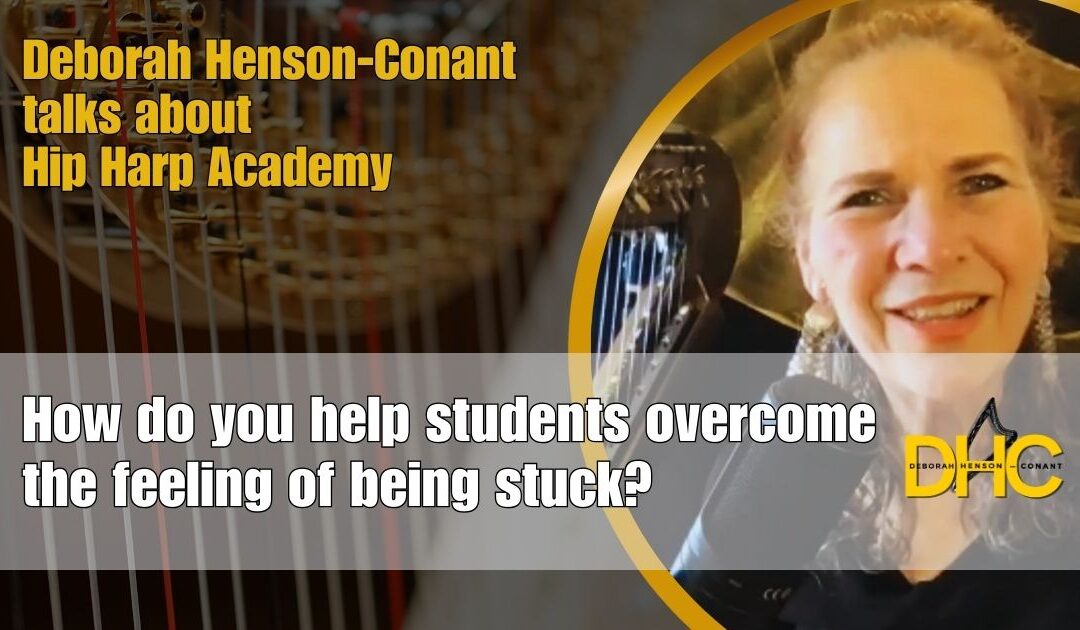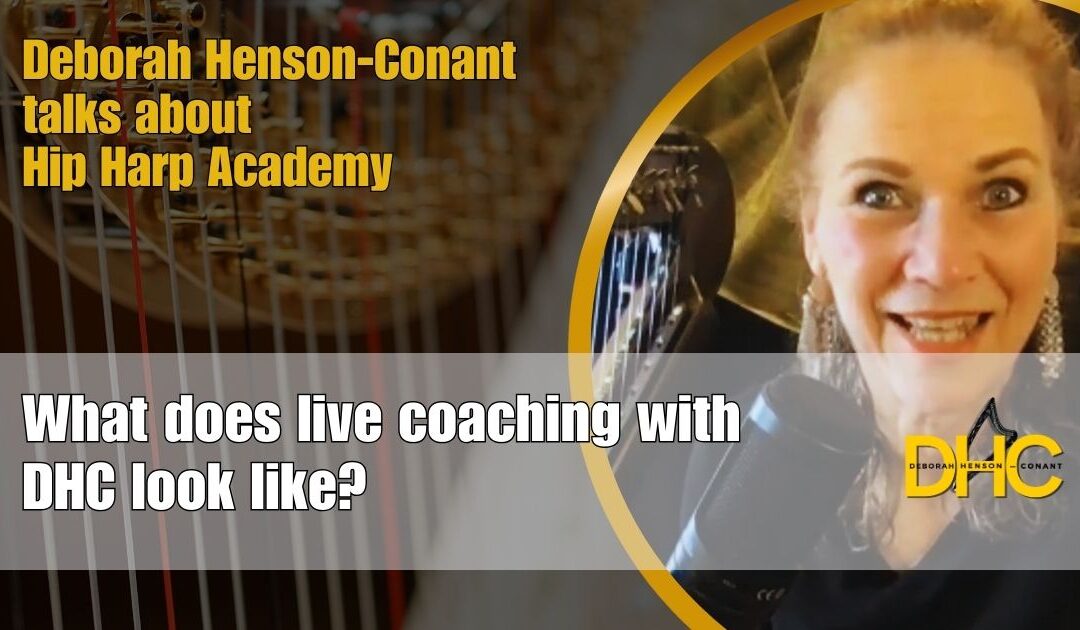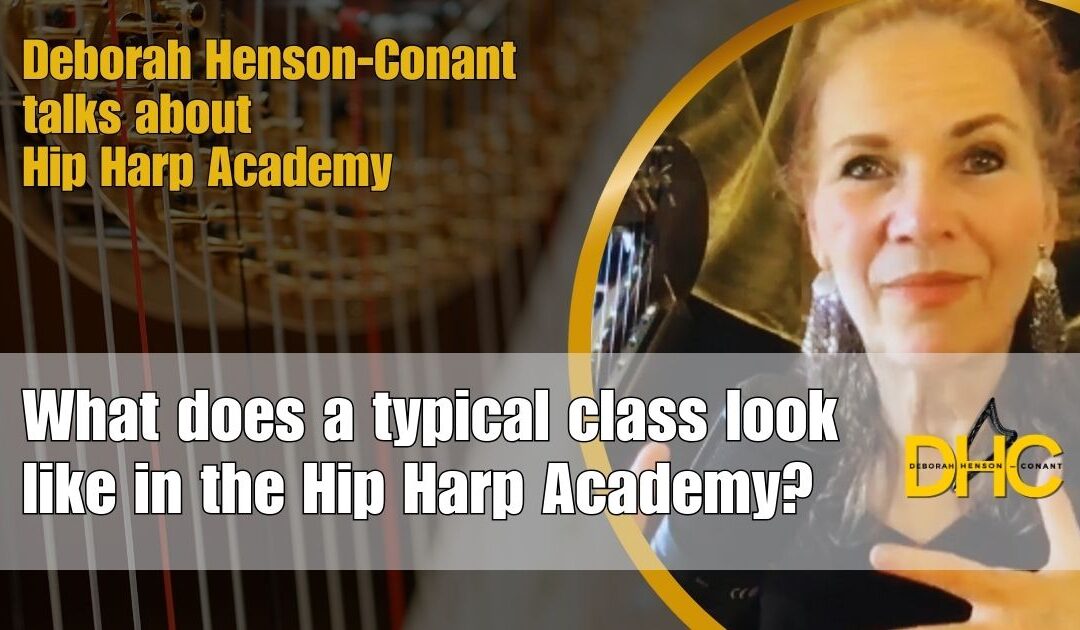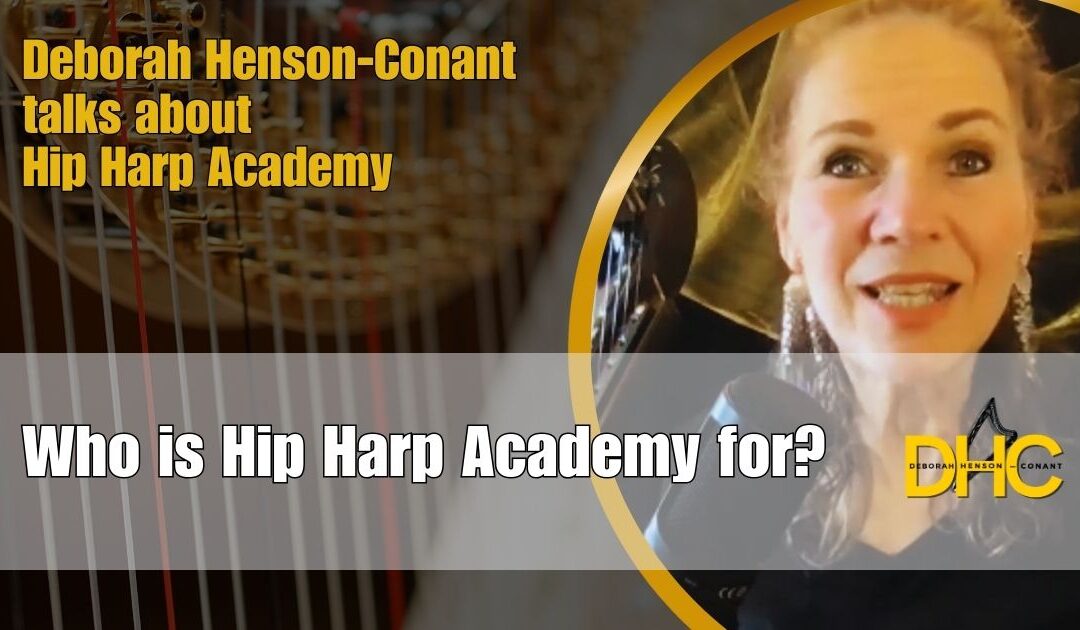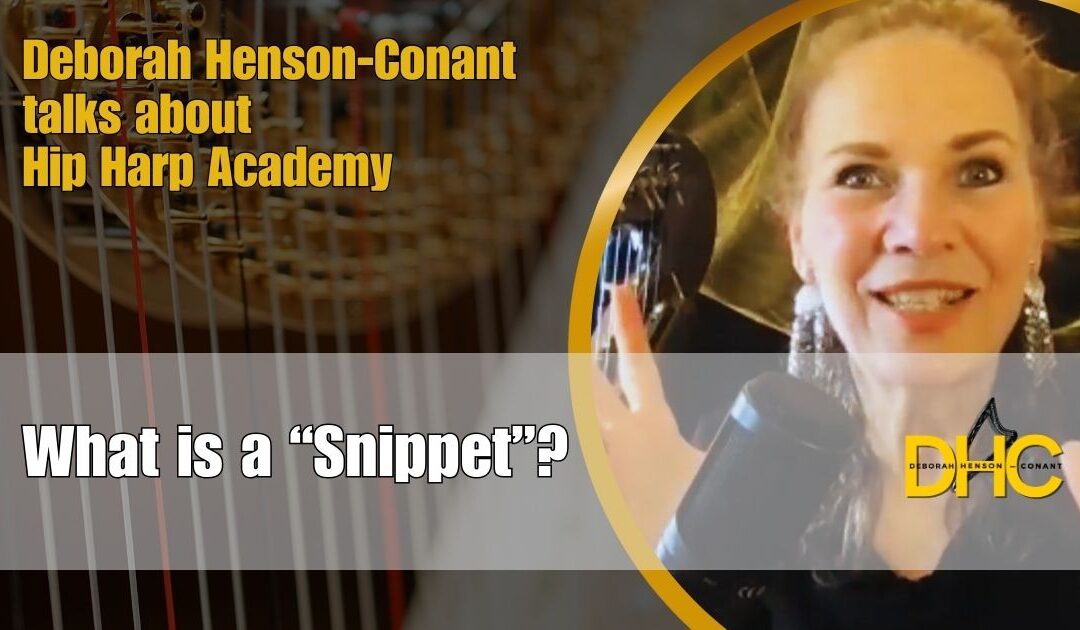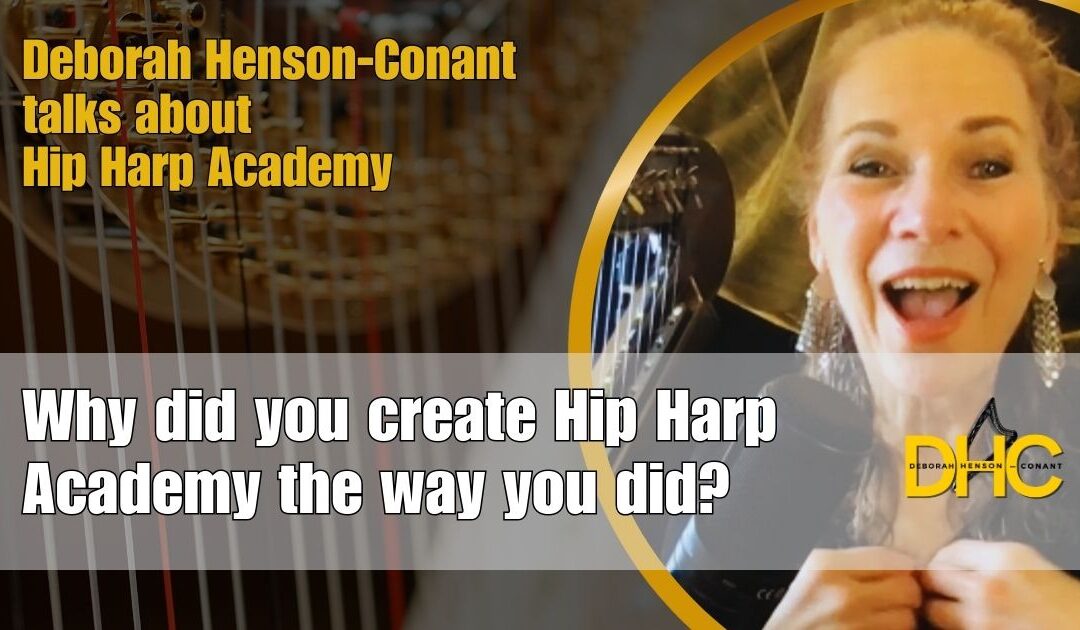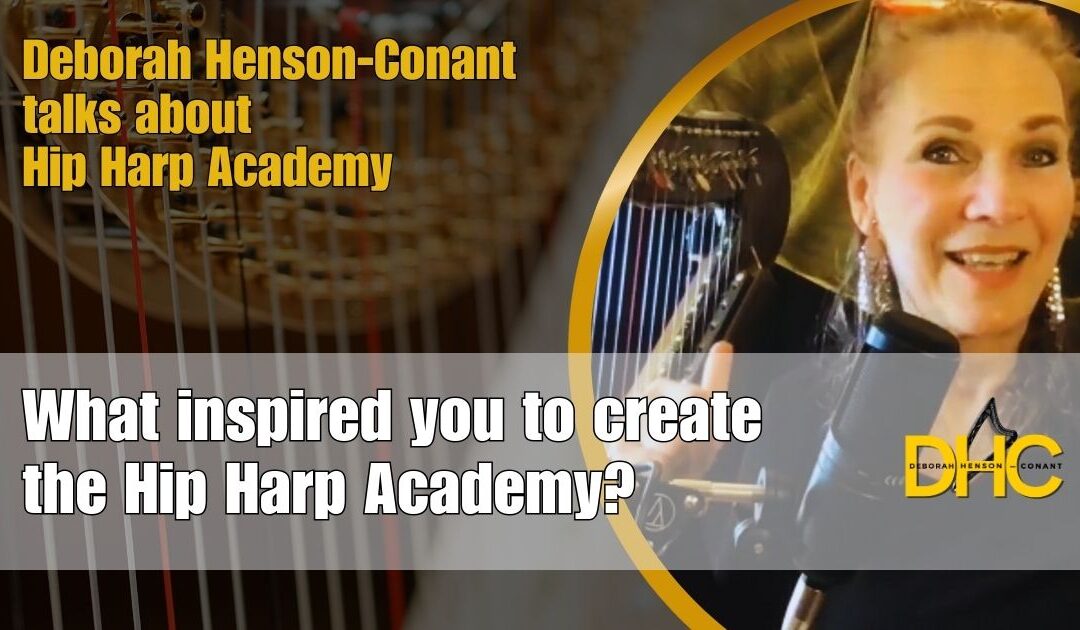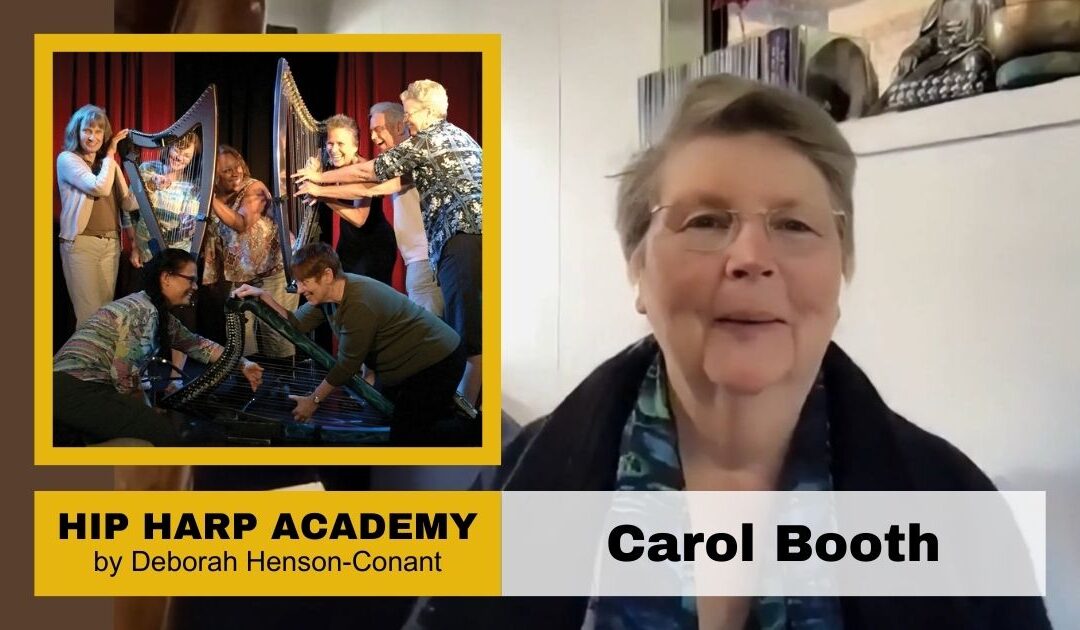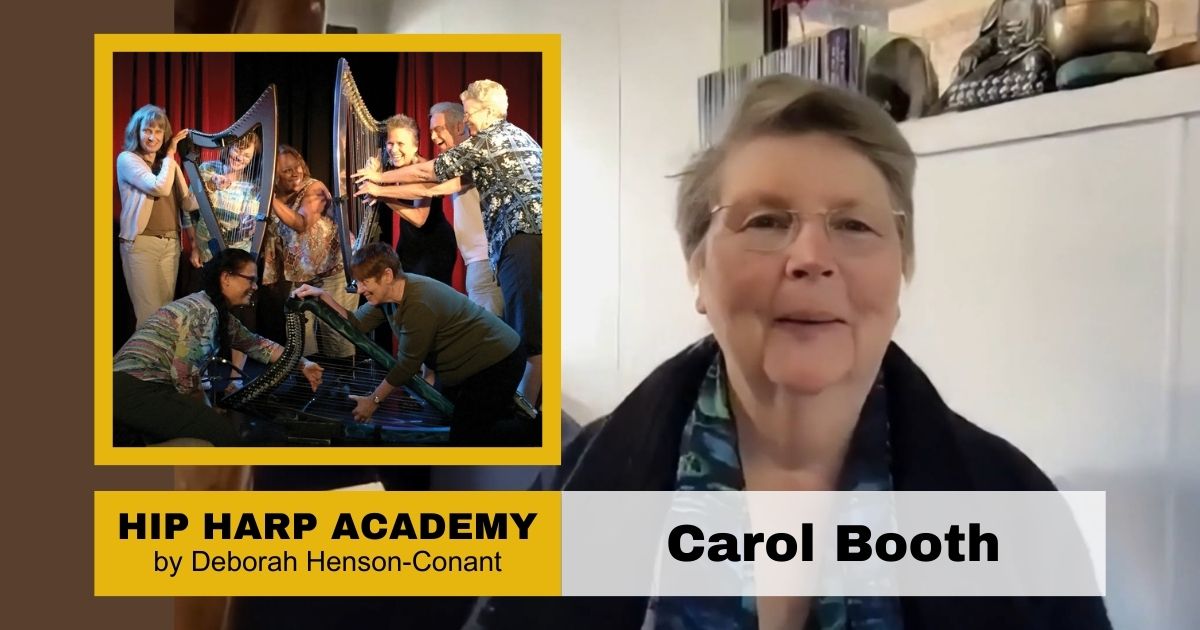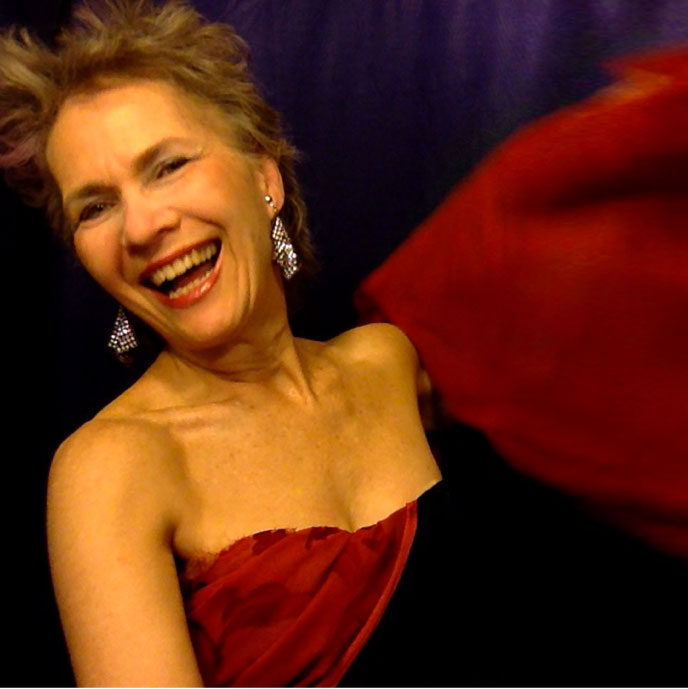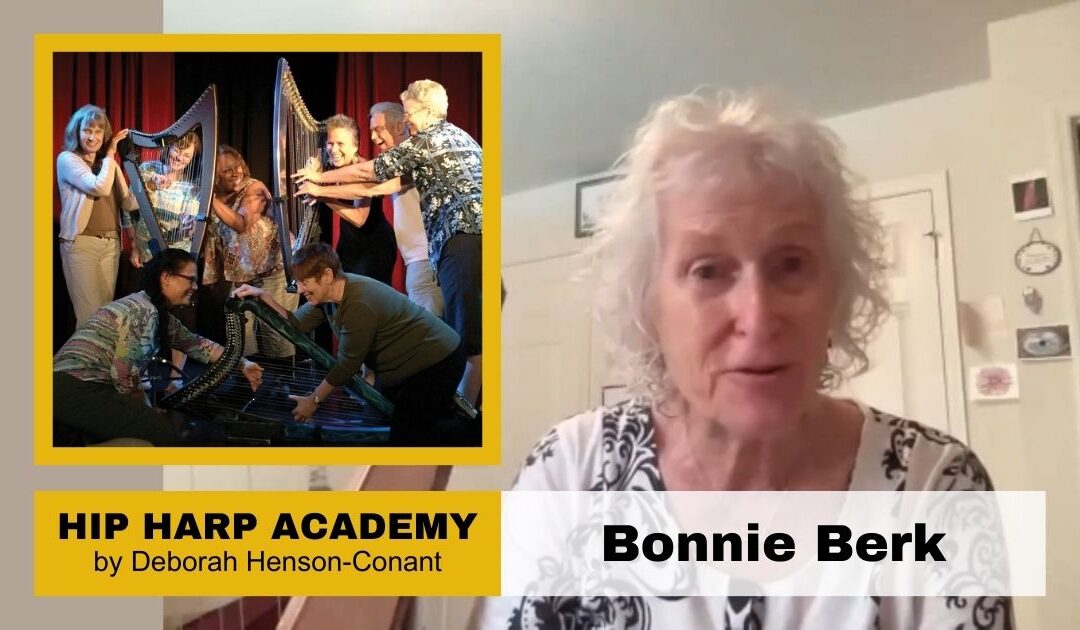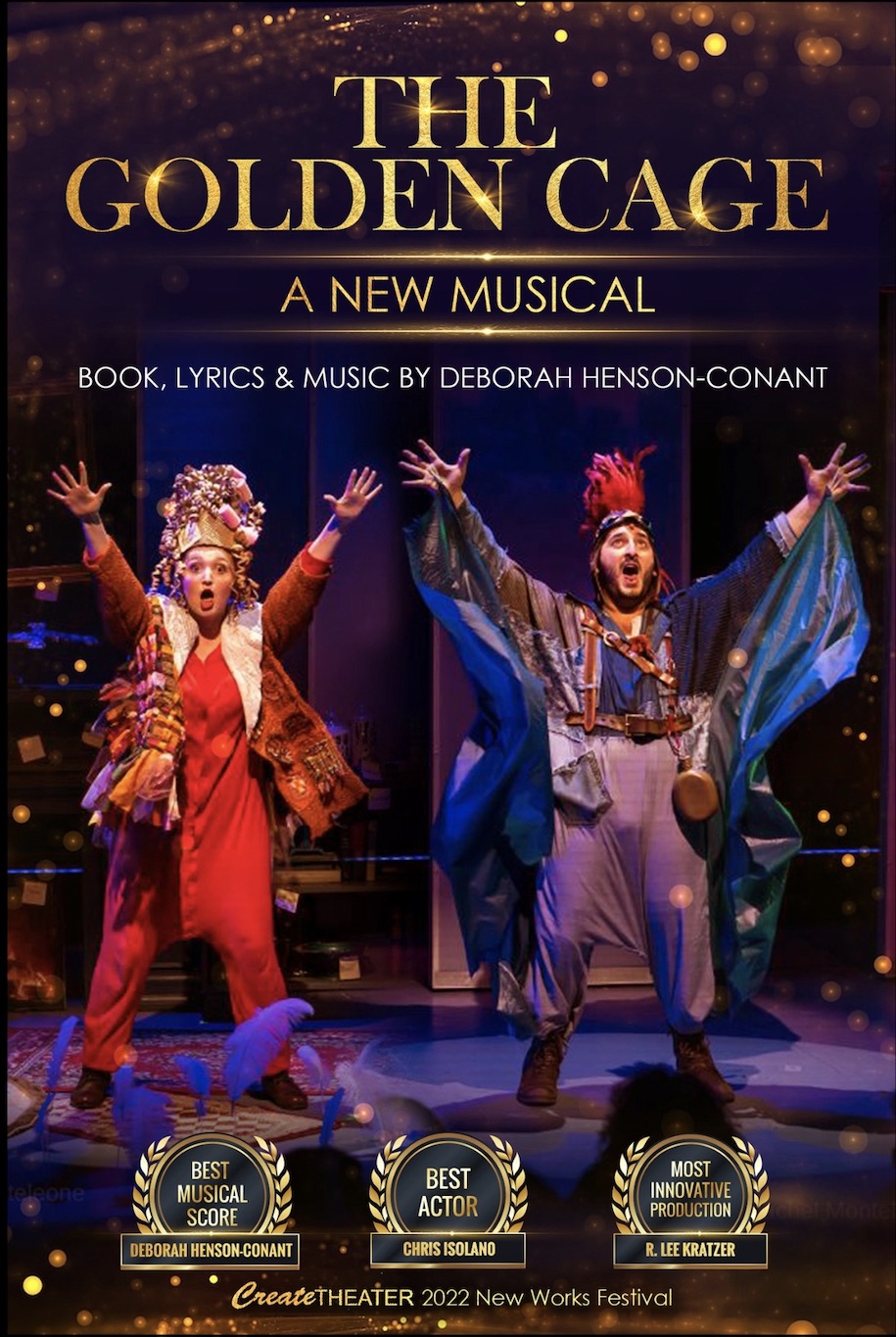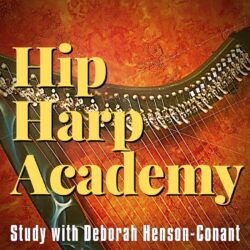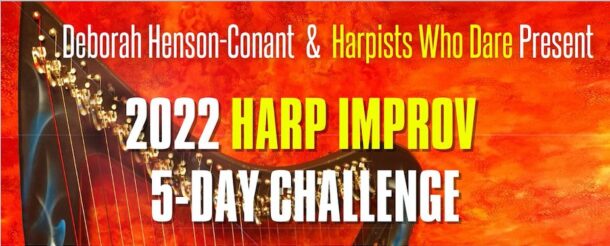Welcome to a one-on-one interview with Grammy-nominated harpist Deborah Henson-Conant, the mastermind behind “Hip Harp Academy” – an online academy where harp enthusiasts come together to learn, inspire, and grow in their musical journey.
In this exclusive interview, Deborah reflects on her deep-rooted passion for igniting the spark of creativity and inspiring others and how she finds great fulfillment in witnessing the Academy members grow, evolve, and find their unique voices through the harp.
Check out Deborah’s answer to the question: What Motivates You to Keep Inspiring Others?
Watch the video above or read the transcript of the interview below.
What Motivates You to Keep Inspiring Others?
It’s so rewarding when I hear the results. When someone says something like, someone said last week, in the middle of a chat, she said, I’m, I’m experiencing this freedom. She said, I went to this. I can’t remember with a yoga class or something like that. And I just started playing, and I was just able to play for two hours, I was freaking improvising. And she’s, I never thought I could do that. And I was thinking about, I always knew you could do that. And then and then I know another it to me, it’s so obvious that people have this capability. And it’s just, it’s right there. I can see it from the beginning.
And I remember somebody said to me, Cherie said, recently, she was like, I came here, I wanted to be able to sing and play the harp, and I thought I would never be able to do that. And I just, you know, presented this project, and I’m singing, and I’m playing and you know, we watched it, and it was wonderful. And I was like, Are you? Are you sure that you had never did this before? And she was like, No, I never did this before. And that is just so, it’s so beautiful. I mean, I feel honored, that I’m the one who gets to see it. It’s like, you know, getting to see, you know, a beautiful red bird or you know, something, something magnificent that nobody else has seen yet or a rainbow, you know, and you’re the first to see it.
And I remember someone said, it was through the the ambient improv project that we created. And that was all about coming up with an idea to practice, and to practice it over and over and over again. And that comes out of this principle that I have, that you can practice to get something to make something happen. But you can also take on a practice and let it get to you. And you know, you don’t know where, where it’s going to take you to. So that’s what this project was about. And this was Carol, and she. And so the first week, she was like, Well, you know, it was just a five-minute exercise five minute practice. She, she told me what it was. And she said, I just did it. And you know, I felt like I grounded more. And she then the next week, she was like, Yeah, I got more comfortable. And then the third week, she was like, something amazing happened for like this split second. I felt like I could do something. And I was like, You mean, like the feeling of mastery? And she was like, yes. So for a split second, this feeling of mastery, like I, I’m just doing it, I’m not trying to do it. I’m doing it. And then the next week, she came back and she said, The most amazing thing happened, I was doing it and I just started singing.
And it’s been so fun. And that’s one of the reasons why it is so important to me, that people sign up for at least a year. Because this is not about, hey, I’m going to teach you to do this thing I can teach you to do this thing. But the magnificence, the magic is when you do it, and you start discovering you start finding new things, not things I’m showing you, but what you’re discovering.
And that’s what happens every week in the academy. And that’s why I always ask, “What did you discover this week?” And then people share it, and others learn from their sharing and that’s why it’s so rich. It’s not just you alone. It’s not just you trying to get something it’s you discovering with other people, sharing that with other people, and what you share then opens that up even more.
If you play the harp:
In this interview, Deborah Henson-Conant described where her motivation comes from – a place of genuine love for music and a profound appreciation for the transformative power it holds. To see, other interview videos of Deborah about the Hip Harp Academy, go to this YouTube video playlist.
By offering a community-driven and inclusive platform for harpists at every stage, the Hip Harp Academy continues to pave the way for musical growth, self-expression, and meaningful connections.
So, if you're looking for more confidence, creativity support and gaining freedom from the notes on the page click the button below and join the Hip Harp Academy.
I invite YOU to join this powerful, supportive, creative community.
Deborah Henson-Conant & Hip Harp Academy Present
HIP HARP ACADEMY SPRING QUARTER: GROUNDED EXPANSION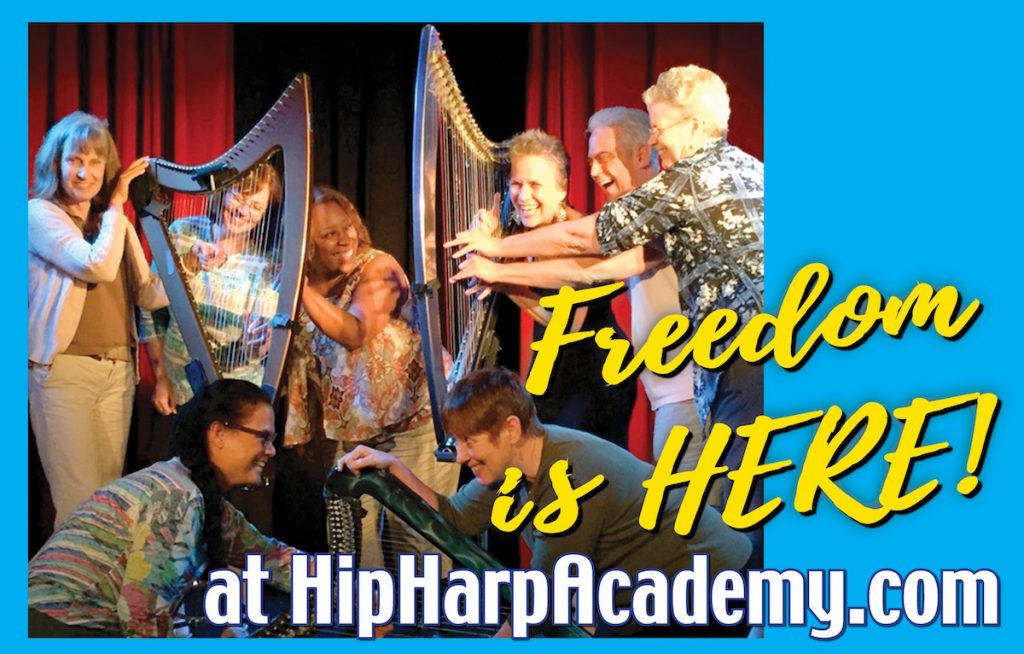 $400 OFF THRU MIDNIGHT APRIL 29
$400 OFF THRU MIDNIGHT APRIL 29
PROJECTS & PERFORMANCES:
FOR HARPISTS:
- Join Hip Harp Academy
- Harp Time Live (FREE Weekly Playalong)
- FREE Resources

